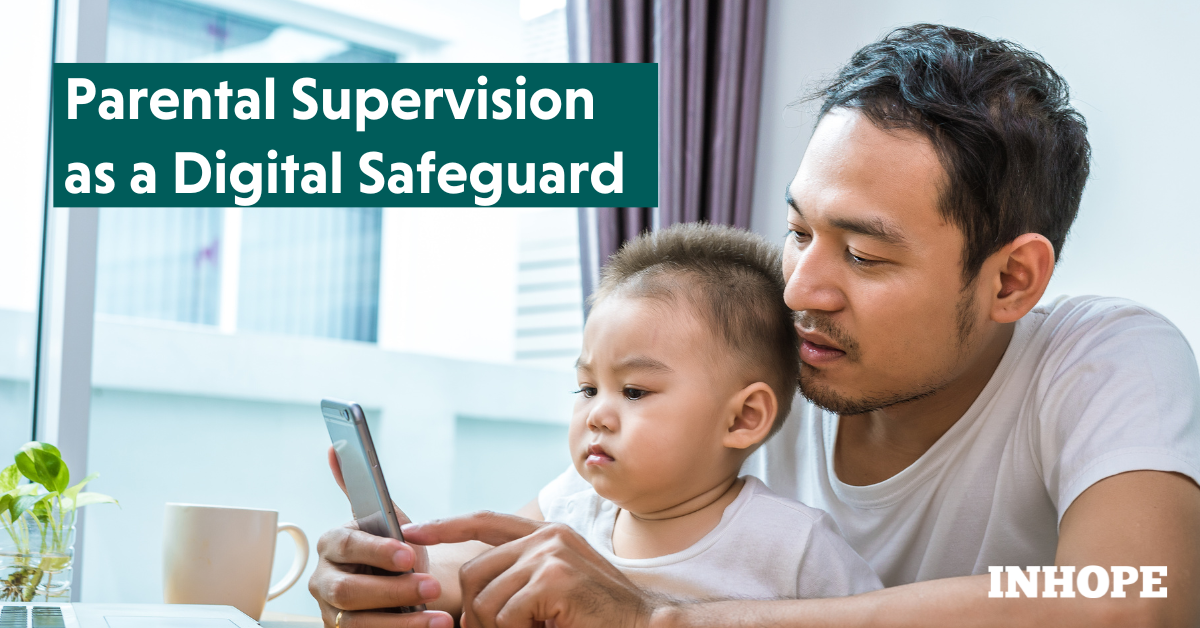Article
Educational Articles
Industry News & Trends
Parental Supervision as a Digital Safeguard
With the festive season behind us, many children and young people have likely received tech devices as presents. During this season – and all year round – it is important to remember the value of parental supervision in the prevention of online abuse. In order to reach our goal of a digital world free of child sexual abuse material (CSAM), we must not only react to abuse but also focus on preventing abuse before it happens.
Prevention and how it relates to supervision
While prevention exists in many forms, and different stakeholders can take on different responsibilities in implementing preventative measures there is always a level of risk. To mitigate risks online we often turn to and rely on industry. Online platforms are often highlighted as the main responsible party in safeguarding users online. However, as the first point of contact, parents and guardian heavily influence a child’s environment and how that environment is navigated.
Parental supervision as a digital safeguard
Industry safeguards are developed but not always implemented by the user. Child-friendly platforms must consider the parental role in their user’s experience. By providing parents and guardians with digestible resources on the latest updates, features and privacy concerns they can proactively implement the safeguards many young users may overlook. Why should parents and guardians be part of digital safety? A recent study has reinforced the value of parental supervision whether passive of active, parental supervision has been proven to be a key component in keeping young users safe.
The research was conducted to investigate the effect of different types of parental supervision on children's digital safety. And the results show that the effect might be even stronger than we previously thought. Comparing the effects of active and passive supervision, researchers found that even the slightest form of involvement in children's digital use can increase their safety online.
Active and Passive Supervision
The researchers differentiate between two different types of parental supervision: active and passive. Active supervision entails monitoring kids' daily digital usage, ensuring all accessed content is age-appropriate and consistently staying involved in what kids are doing online, passive supervision can be as simple as being in the same room while the child is online. Whilst active supervision is shown to have the strongest positive effect on children's safety, being constantly aware of kids' digital use can seem daunting.
The good news is, that not all supervision has to be time-intensive. Parents who have been feeling powerless in keeping their kids safe from online harm don't longer have to be. They can make a significant impact on their children's safety just by overseeing where in the house digital technology is being used. Many groomers perceive the presence of parents as an increased risk of being detected. Keeping your child safe online can therefore look as follows:
- Asking your child to be in the same room as you when using their phone
- Only allowing computer access in common living spaces
- Restricting camera and mobile microphone access on social media apps
Parental supervision shows to be a strong determinator in children's digital safety, as children whose online activity is monitored by their parents are less likely to fall victim to an online grooming offender. Disclosing or hinting at the fact that a parent might be close by has been shown to effectively deter bad actors.
The research results demonstrate how important it is to provide parents and guardians with the appropriate knowledge and resources on how to keep their kids safe online. This is why it is so crucial that tech companies don't just provide resources but make sure that parents remain informed about changes and updates on different platforms. Privacy online is scarce and children don't understand the long-term ramifications of sharing personal details online.
It is essential to understand that being a digital citizen can entail certain risks, especially for young people. But that does not mean spending time online is inherently unsafe. There are endless ways to make sure that all users, especially our youngest can have safe experiences online. We have to aim to empower any parent or guardian to keep their children safe in digital spaces by equipping them with the appropriate resources, best practices and know-how.
Find out why prevention is crucial in tackling online sexual grooming and learn how to identify an online grooming attempt within the early stages.

Privacy online is scarce and children must understand the long-term ramifications of sharing personal details online.
'